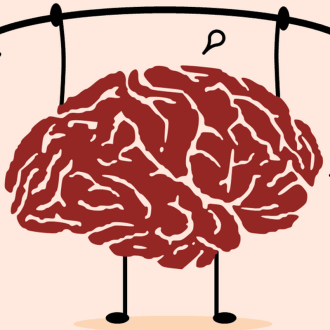The Best of Psychology Today
20+ most popular Psychology Today articles, as voted by our community.
Psychology Today on Anger
The Relationship Between Anger and Vulnerability
How people in pain can release anger and improve their relationships.
Psychology Today on Anxiety
Anxiety and Depression Are Symptoms, Not Diseases
Depression and anxiety are signs that one is not getting key needs met.
Psychology Today on Better Living
10 Tips for Turning Procrastination into Precrastination
How to get started with getting started.
«Procrastination is reinforced by a powerful reward—relief from anxiety.»
12 Lifestyle Choices That Can Save Your Brain, Starting Now
At any age, you can lower dementia risk by controlling these 12 risk factors.
Psychology Today on Mental Health
10 Exercises to Make You Mentally Stronger
Building a little mental muscle could have a big impact on your life.
The Impact of Social Media on Body Image, Eating, and Health
Emerging research suggests social media may be more harmful than we realize.
Psychology Today on Personality
A Personality Profile of Psychologically Healthy People
A particular collection of personality traits is associated with well-being.
«Recognizing when you are doing things that get in the way of your happiness and satisfaction is a first step toward acting differently in those situations.»
Psychology Today on Psychology
The Ten Year Rule: Change Your Life Every Decade
Why the greatest obstacle to success is success.
«You should change what you do, or how you live, every ten years because the greatest obstacle to success isn't failure; it's success»
How to Use a Sense of Urgency to Do What Actually Matters
Harness your motivation to tend to "urgent" matters as a way to achieve goals.
«We know that our brains respond to urgency, so instead of fighting against ourselves, we can harness this latent motivation and use it to get things done.»
Psychology Today on Relationships
The Value of 'No'
What we can learn from rejections.
«If you hear "yes" at every single career stage, you probably did not reach high enough. If you never hear "no," chances are you did not take many risks (or you are just exceptionally talented, lucky, or both).»
What It Really Means to Be Ghosted
New research into relationship endings shows how many simply just stop contact.
Psychology Today on Self Love
Self-Love and Narcissists: A Correlation of Control
Is there a relationship between low self-esteem and falling for a narcissist?
5 Ways to Develop Self-Love, and Why You Need To
The most important relationship you have in life is the one with yourself.
«When it feels tough, pretend you’re standing up for your best friend. LinkedIn and Facebook image»
Psychology Today on Stress
What Is the Dissociative Mind?
When we face overwhelming stress, disconnecting can be a coping skill.
«Dissociation happens because the person is engaged in an automatic activity and is not paying attention to his or her immediate environment.»
Cultivating Hope to Boost Your Mental Health Under Stress
Tools from positive psychology to help you overcome stress and adversity
Popular
These are some all-time favorites with Refind users.
What Occupies Your Mind?
Are you holding onto at least one thing that’s way past its expiration date?
«You could do a similar practice by writing a note about this attachment, and then tearing it up and letting its pieces fall away»
The Resiliency of Happiness
A study of the history of happiness shows that even nations bounce back.
«Though GDP has increased roughly across all the nations over the last 200 years, the National Valence Index fails to show a similar rise. »
How to Get Hooked on Making an Effort
Viewing effort as part of a feedback loop could help us enjoy the process.
«We can look at effort through a feedback loop that looks like this: effort > performance > pleasure > motivation > effort»
6 Principles to Form Healthy Habits
#3: Habits are learned through repetition.
«Use event-based cues (e.g., studying after lunch) than time-based ones (e.g., studying at 7 pm) because the former are generally more effective»
What is Refind?
Every day Refind picks the most relevant links from around the web for you. is one of more than 10k sources we monitor.
How does Refind curate?
It’s a mix of human and algorithmic curation, following a number of steps:
- We monitor 10k+ sources and 1k+ thought leaders on hundreds of topics—publications, blogs, news sites, newsletters, Substack, Medium, Twitter, etc.
- In addition, our users save links from around the web using our Save buttons and our extensions.
- Our algorithm processes 100k+ new links every day and uses external signals to find the most relevant ones, focusing on timeless pieces.
- Our community of active users gets the most relevant links every day, tailored to their interests. They provide feedback via implicit and explicit signals: open, read, listen, share, mark as read, read later, «More/less like this», etc.
- Our algorithm uses these internal signals to refine the selection.
- In addition, we have expert curators who manually curate niche topics.
The result: lists of the best and most useful articles on hundreds of topics.
How does Refind detect «timeless» pieces?
We focus on pieces with long shelf-lives—not news. We determine «timelessness» via a number of metrics, for example, the consumption pattern of links over time.
How many sources does Refind monitor?
We monitor 10k+ content sources on hundreds of topics—publications, blogs, news sites, newsletters, Substack, Medium, Twitter, etc.
Can I submit a link?
Indirectly, by using Refind and saving links from outside (e.g., via our extensions).
How can I report a problem?
When you’re logged-in, you can flag any link via the «More» (...) menu. You can also report problems via email to hello@refind.com
Who uses Refind?
450k+ smart people start their day with Refind. To learn something new. To get inspired. To move forward. Our apps have a 4.9/5 rating.
Is Refind free?
Yes, it’s free!
How can I sign up?
Head over to our homepage and sign up by email or with your Twitter or Google account.



















